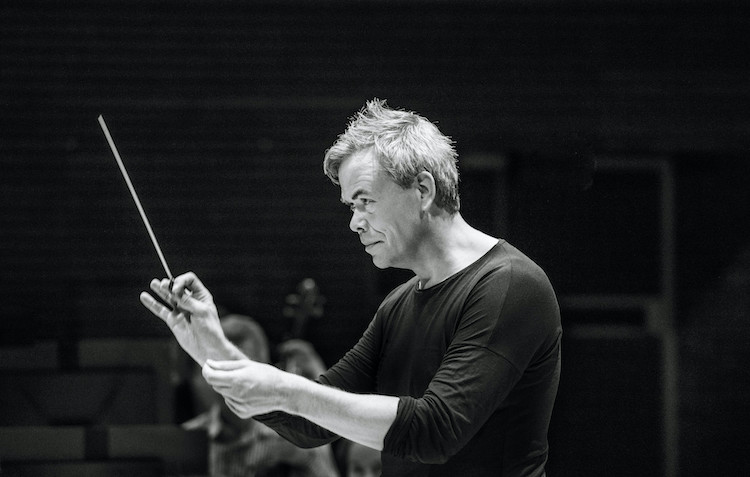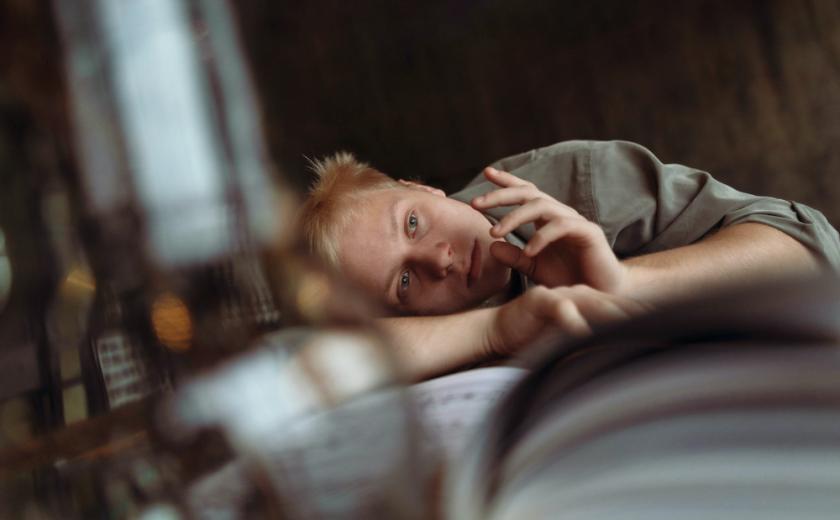This was a muesli programme: nutty, crunchy, just sweet enough, its success lying in the balance of the various ingredients. At times, such was the explosiveness of the playing, it felt like popping candy had been added to the muesli, but in a good way. The fireworks came in the brilliant John Adams finale, but also from the young Russian pianist Alexander Malofeev, whose playing blazed in the first half.
Prokofiev’s Third Piano Concerto, written for the composer himself to play and begun when he was little older than Malofeev is now, is certainly young man’s music. Malofeev responded to its skittishness and whimsicality, turning on a sixpence from silky arpeggios to hammering chords. His muscular playing belies his fey appearance, almost impossibly blond and pale, sitting low at the piano, gentle in demeanour – till the action begins. But there was finesse as well as fireworks in the second movement, as he navigated the theme and variations’ emotional journey from naïve gavotte to earnest contemplation. In the finale it was back to blistering passagework and phenomenal double-octaves and, as if the concerto itself was a mere bagatelle, he gave us Mikhail Pletnev’s transcription of the pas de deux from the Nutcracker, Malofeev’s extraordinary facility not masking the subtlety with which the melody emerged from the middle of the texture.
The concerto was preceded by Bernard Rands’ Symphonic Fantasy, a 24-minute movement which was apparently modelled on Sibelius’s Seventh Symphony, not something I would have guessed if I hadn’t read the programme. This former student of Berio and Dallapiccola, in this commission for his 85th birthday in 2019, reminded me more of Berg, at times even Tippett. There were even some major chords. The scoring, rarely using the orchestra all together, was skilful and transparent but the whole thing felt a little bitty, even with considerable recapitulation of material. Conductor Hannu Lintu (pictured above by Veikko Kähkönen) was detailed and authoritative in these two pieces, but really came to life in the second half, with the excellent pairing of Stravinsky’s Song of the Nightingale and John Adams’s Slonimsky’s Earbox. The Stravinsky is an extraordinary piece, its composition begun when he was a nobody and completed when he was the most famous composer in the world. It is exquisitely scored, the BBCSO responding with crisp and punchy playing. Flautist Michael Cox skittered and fluttered, and bass trombone Robert O’Neill had a delightfully throaty solo spot. Lintu gave full rein to Stravinsky’s colours – which embrace a slightly uncomfortable orientalism – but the plaintive final song by trumpeter Niall Keatley returns us firmly to Russia.
Conductor Hannu Lintu (pictured above by Veikko Kähkönen) was detailed and authoritative in these two pieces, but really came to life in the second half, with the excellent pairing of Stravinsky’s Song of the Nightingale and John Adams’s Slonimsky’s Earbox. The Stravinsky is an extraordinary piece, its composition begun when he was a nobody and completed when he was the most famous composer in the world. It is exquisitely scored, the BBCSO responding with crisp and punchy playing. Flautist Michael Cox skittered and fluttered, and bass trombone Robert O’Neill had a delightfully throaty solo spot. Lintu gave full rein to Stravinsky’s colours – which embrace a slightly uncomfortable orientalism – but the plaintive final song by trumpeter Niall Keatley returns us firmly to Russia.
The way Slonimsky’s Earbox shrieks into life seems to lead straight out of Stravinsky’s Nightingale. Lintu was off-stage for only a matter of seconds, and started conducting virtually from the moment he re-appeared – he obviously loves this piece. It’s a tribute to Russian musicologist Nicholas Slonimsky’s Thesaurus of Scales and Melodic Patterns, a go-to for musical inspiration for Adams, and the ribbons and shards of melody he takes from it really slap you round the chops. There was a rare and welcome solo for violist Scott Dickinson, which he attacked with gusto, and the kinetic thrust to the whole performance was irresistible. The music drives to its climax, a classic ecstatic Adams ending, like a dramatic and highly-charged version of the Countdown theme.













Add comment